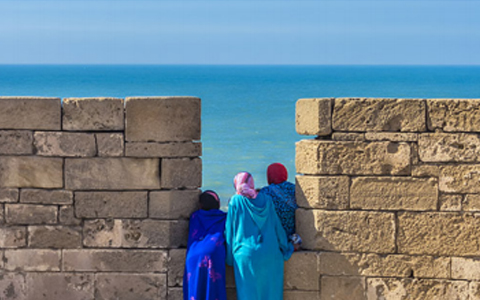Researchers sound alarm on acidification of seas
Background
Project: MEDSEA
Scientists have long suspected that the acidification of our seas may harm their flora and fauna. But the likely impact in the Mediterranean was a mystery – until now. The knowledge on acidification gained by EU-funded researchers is of great concern – the team is now calling for urgent action to protect the Mediterranean Sea’s precious biodiversity and its many other benefits.

Our oceans are very efficient at absorbing carbon dioxide (CO2) from the atmosphere. This helps curb global warming, but is not such good news for oceans. They have absorbed so much CO2 that it is changing their chemistry and resulting in acidification.
The causes of acidification are well known, but the consequences much less so, explains Patrizia Ziveri of the ICTA, UAB, in Spain and coordinator of the MedSeA project. In fact, when the project began in 2011, the team was “starting from zero” for the Mediterranean, she says. So, the MedSeA consortium – bringing together teams from many of the countries bordering the Mediterranean Sea – began by collecting samples and conducting laboratory experiments.
The focus was on endemic, iconic and economically important species, and on understanding how acidification and warming are altering marine life. In some areas, acidification occurs naturally as CO2 is released from underwater volcanic vents. Studies in these ‘natural laboratories’ showed how drastic the changes to biodiversity may be.
Iconic ecosystems at risk
The combined effect of warming and acidification will rapidly and irreversibly change marine ecosystems and endanger some of the Mediterranean’s natural treasures. It will also impact livelihoods: around 147 000 tons of bivalve mollusks (such as mussels, clams and oysters) were produced in 2012, representing around €298 000 million and numerous jobs. These shellfish are very sensitive to both water temperature changes and acidification, so the sector is at risk. Reefs and sea grass meadows help protect some of the Mediterranean’s idyllic sandy beaches from erosion. Also, vulnerable, their absence would expose shores to the destructive power of storms.
And if iconic species that draw people to the Mediterranean for diving disappear because of acidification, tourism may suffer. Red coral, for example, only found in the Mediterranean, grows extremely slowly and is particularly vulnerable.
The disappearance of gorgonians – or sea fans – a big draw for divers, would mean a welfare loss equivalent in monetary terms to around €5 million/year for Spain’s Medes Islands. An increase in stinging jellyfish thanks to warmer waters and other human activity would compound the problem, reducing beach trips to popular Israeli tourist sites by up to 10.5% and leading to annual losses of €6.2 million.
“It’s time to act”
“We are living in a rapidly changing environment and it’s changing because of our actions. What people are used to seeing is in danger. It’s time to act and find solutions together,” says Ziveri. The MedSeA scientists have been taking this message to everyone from politicians to the general public, with leaflets, videos and educational resources. These efforts have paid off, with the project already attracting the European Parliament’s attention.
Student exchanges between Africa and Europe will also ensure a new and international generation of scientists passionate about preserving the Mediterranean. Telling people about the problem is half of the challenge – getting them to act is the other. Acidification is irreversible, but it is possible to stop it worsening. Reducing CO2 emissions is important, but removing other stress factors, such as over-fishing and pollutants, would improve species resilience, at least until there is an international climate agreement on greenhouse gas emissions.
Key to the success of MedSeA was intense collaboration between the project partners from various disciplines and countries. “National waters are, after all, a relative concept for acidification and climate change,” says Ziveri. “It is very important to find common ground for research and policies.” What next? “It would be bad to stop our research now,” says Ziveri. “We must explore possible adaptation and mitigation strategies at local, national and international levels.” The team is looking into maintaining the network and the Mediterranean monitoring stations for ocean acidification set up during MedSeA.
Click here to read an article about MeDseA in Horizon Magazine
This innovation was made possible by Israel’s continued participation in the official Horizon 2020 fund, managed in Israel by ISERD part of The Israel Innovation Authority (Formerly the Office of the Chief Scientist and MATIMOP). The initiative has taken Israeli R&D to the next level with the help of ground-breaking collaboration between scientists in Israel and Europe, as well as essential funding and support.
Project details
Project: MEDSEA
Participants: Spain (Coordinator), Israel, France, Greece, Italy, UK, Germany, Morocco, Egypt, Tunisia
Project Reference N° 265103
Total cost: €4 824 146
EU contribution: €3 490 169
Duration: February 2011 – July 2014
